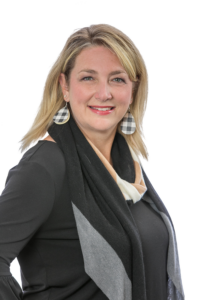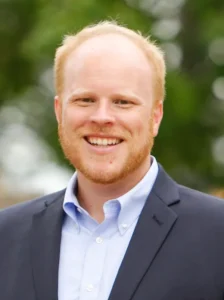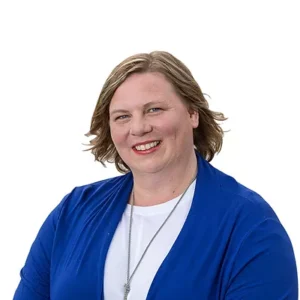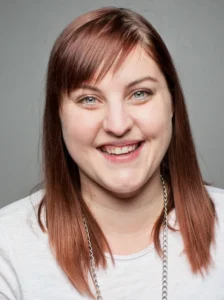by Dennis Dalman
(Please note: Six candidates are vying for three seats on the St. Cloud school board. They are Mike Bueckers, Theresa Carlstedt, Natalie Copeland (incumbent), Zachary Dorholt (incumbent), Nicole Rierson and Heather Weems. These are partial responses to a questionnaire sent by the Newsleaders. Bueckers and Carlstedt did not return their questionnaires by deadline. The general election will be held Tuesday, Nov. 8.)
The following are questions to the candidates and their responses:
Weems: Educational processes should be continuously reviewed
Heather Weems, a candidate for the St. Cloud School Board, said she believes educational processes in schools must be continuously reviewed to determine what works best – and what doesn’t.
Name the three top reasons you decided to run for school board.
“One: Our kids benefit from quality teaching, personal support and engagement opportunities that meet them where they are and maximize each student’s potential.
“Two: Our schools benefit from leadership, curriculum and funding that prepares students for 21st Century living.
“Three: Our communities benefit from outreach and partnership that are student-focused and based upon respectful dialogue and real solutions.”
What are the best strengths and the worst weaknesses of current public education in St. Cloud schools? How can they be made better?
“District 742 serves a diverse population of learners, which requires a wide range of classes, services and programs. The teachers are well-qualified and the curriculum provides broad opportunities. Schools must continue to provide individualized support to meet student needs.
Within our school district we need to concentrate on providing the best education we can for each student. Will we always be correct, will we never have to back up and rethink how we’re doing? That is not the way of the world and human life. People are constantly evaluating how things are done – on the job, in relationships, through government and law, and in classrooms. If there is one thing that is constant it should be dedication to doing what is best.”
There are so many controversies swirling around public education these days. They include the following: 1. Critical-race theory. It’s claimed it is not taught in schools. Is it, or is it not? 2. “Questionable” books made available to students. 3. Accusations that teachers are “grooming” students for gender distortions because of the LGTB movement. 4. The “shaming” of white students based on racial grounds. 5. A “plot” is afoot to corrupt public education by introducing socialist, communist, anti-American ideas into the minds of students. Would you please give your opinions on each of those hot-button issues.
“(1) Critical race theory is not new, it is a scholarly examination of society that has suddenly become the stuff of headlines. It is the responsibility of schools to teach history as it really was, including facts that are uncomfortable or controversial, and prepare students for life through the development of academic skills, critical thinking, and social and cultural awareness.
“(2) Books expose students to new ideas and perspectives. Parents have always had a voice if they preferred an alternative to an assigned book, but the best way to shape values is for parents to read and discuss controversial topics with their children. The controversial content available in libraries and books is no more dangerous than what exists on the web and social media. Again, teaching critical thinking skills enables students to evaluate ideas on their merits.
“(3) Schools must ensure all students and their families feel welcomed, affirmed and supported. In so doing, students of all backgrounds are exposed to different lifestyles, customs and beliefs. The ability to empathize with peers and practice curiosity, kindness and respect, as opposed to judgment, is part of the learning process and critical to a healthy society.
“(4) Growth and development requires we all reflect on our own lives. Exposing differences in the lived experiences of various groups can help build empathy, kindness and support.
“(5) P-12 curriculum is highly scrutinized and legislated. It is hard to imagine an organized plot when teachers must spend extensive time addressing the curricular requirements of standardized testing. There is only so much time in a day.”
How can schools be made more secure against the horrible potential for mass shootings and other incidents of violence?
“The safety of our schools is a true community partnership. Schools must implement best practices identified by experts and law enforcement. From a psycho-social perspective, we have to create connection to the best of our ability. We also need to work with families, counselors and mental-health providers to ensure students know support is available and how it is accessible.”
Some teachers are feeling burn-out and starting to leave the profession. Are there ways to stop that?
“Teachers have long been our heroes, role models and mentors. They arrive in their positions as trained professionals and must be supported and trusted in the work they do. Additionally, we as parents and guardians have an important role to play in the expectations we set with our students and how we help support a strong educational environment.”
Background
“I have served as an administrator in higher education the entirety of my career, initially as an academic advisor and then through athletics administration at both public and private universities, including director of athletics at St. Cloud State University for 10 years. I have a strong understanding of group dynamics, leadership and how to navigate within systems and policies to positively impact kids. I have been a student-focused leader at the university level and respect the importance of P-12 education and its impact on student lives. I have four children who have been/are served by District 742 and are experiencing great academic opportunities. Our community demographics require we be principled but also innovative in delivering education to the diverse student population we serve.”
Dorholt: Global education, locally
Zachary Dorholt, incumbent member of the St. Cloud School Board, strongly believes diversity in the schools, ranging from farmers to refugees and “everywhere in between,” provides a global education – locally.
Name the three top reasons you decided to run for school board.
One: My children’s future.
Two: My personal passion for public education.
Three: I was asked and encouraged to run.
What are the best strengths and the worst weaknesses of current public education in St. Cloud schools? How can they be made better?
Strengths: Our diversity, it ranges from farmers to refugees and everyone in-between; we provide a “global” education, locally. Also, with our relationships with St. Cloud State University and St. Cloud Technical and Community College, we are incredibly fortunate to have these institutions in our district, with unique partnerships you cannot find elsewhere.
Weaknesses: There are opportunities for us to update and improve Apollo High School. That we need to provide to our students. We need to continue improving upon staying competitive in this current job market so we can meet our staffing needs.
There are so many controversies swirling around public education these days: critical race theory, “questionable” books made available to students, accusations that teachers and school boards are grooming children for gender “distortions” because of gender “distortions,” the “shaming” of white students based on racial grounds, a “plot” to corrupt public education by introducing socialist, communist anti-American ideas into the minds of children. Would you please give your viewpoints on each of those hot-button issues?
I disagree; there are many “manufactured” controversies.
Critical-race theory: If you’re lucky, maybe you would have the opportunity to be taught critical race theory in a college course, and you would have to choose to take that class.
Anyone can call a book “questionable.” Our district has regular reviews of the books available in our district, and we include parents’ input when we update our libraries and curriculum.
Accusations that teachers and school boards are “grooming” children for gender distortions because of the LGTB movement?
I have never been told we are doing this by anyone in our district or community. If we are “grooming” our students for anything, it would be grooming them to be successful in a 21st Century workforce and to be responsible members of the community.
A “shaming” of white students based on racial grounds?
Again, this has never been reported to me by anyone in our district or community. I would hope no student ever feels shamed for anything while in our schools, and if this were to be the case, I would play an active role in addressing it.
There is a “plot” to corrupt public education by introducing socialist, communist and anti-American ideas into the minds of students?
“Plot?” By whom? I would hope every student is able to differentiate between socialism, communism and capitalism by the time they graduate, and I hope to make civics a more active part of K-12 education.
There has been a decline in the past two or three years in students’ competency in reading and math. What can be done about that?
This is not local. This is a national issue; we need at the state and national level a broader conversation about “grade levels,” and how to meet each and every student where they’re at, so we can help them get where they need to be.
How can schools be made more secure against the horrible potential of mass school shootings and other incidents of violence?
We have increased security measures district-wide, including more secure entrances and identification of staff and students, and we will continue to improve on this, along with continued partnerships with local law enforcement and community relationship building.
Some teachers are feeling burn-out and leaving the profession. Are there ways to stop that?
We are seeing this nationwide in many, many fields, including the one I work in – mental health. We need to continue supporting our teachers by actively listening to them and listening to their needs, as they are the experts observing our children every day.
Background
I am a licensed mental-health professional with more than a decade of experience in this field, and my current and recent positions exist within the crossroads of mental health and the justice system, as I spend most of my time working with people who are incarcerated.
I have three children attending Madison Elementary School, and I get to hear on a daily basis how our schools are doing from multiple perspectives. I am also part-owner of a small business, so I know how to manage budgets, work with employees and how taxes impact our community and businesses. I have experience at the state level, having served in the State Legislature, and my passion and desire to make sure all our students have the skills they need to be successful in today’s world is what drives me and my decisions in this role as a school-board member.
Rierson: Social issues jeopardize learning process
Nicole Rierson, a candidate for the St. Cloud School Board, said she believes controversial issues have crept into school rooms and are jeopardizing the learning process.
Name the three top reasons you decided to run for school board.
“I believe St. Cloud Public Schools can do better – we need to refocus our curricula on those basic disciplines and skills to prepare our students to function effectively and succeed in society; and to achieve that, our academic proficiencies must be improved. I want to be a positive voice that represents the parental perspective, establish strong academic standards and prepare our students to be good citizens today and always.”
What are the best strengths and the worst weaknesses of current public education in St. Cloud schools? How can they be made better?
“The chief strength of the district is the dedicated and professional teaching staff who faithfully serve an astonishingly diverse student population. But we must also ask ourselves if this concentration on a micro-level of care is leading us to a point that we unintentionally lower our standards and expectations for the broader student population? An effective school board must be constantly self-reflective, honestly evaluate the intentions of its policies and initiatives, celebrate the successes and admit failures and be willing to adjust, all in the context of what is best for our students.
There are so many controversies swirling around public education these days: critical race theory, “questionable” books made available to students, accusations that teachers and school boards are grooming children for gender “distortions” because of gender “distortions,” the “shaming” of white students based on racial grounds, a “plot” to corrupt public education by introducing socialist, communist anti-American ideas into the minds of children. Would you please give your viewpoints on each of those hot-button issues?
“There are too many controversial issues creeping into public education that distract from the chief intent of sincere academic pursuit. It is reprehensible that our schools are integrating social ideologies into the curriculum that unintentionally seek to divide students, teachers and parents.
“Moreover, it is abhorrent that Minnesota is seeking to modify criteria for teacher licensure and social studies standards to elevate such ideologies as critical race theory, white shaming and sexification of young students over genuine academic proficiency. Furthermore, I encourage voters to consider the subject of behavior-management plans. Schools and staff should help students feel safe. No single identity group should have a greater voice than any others because truly a bias toward one only suppresses others. School spaces, teachers and staff must remain neutral and accept every person equally. We must admit we’ve invested resources into some programming that simply is not working and support our teachers by providing content-rich curricula. We need to raise the bar academically and press toward successful outcomes for all.”
How can schools be made more secure against the horrible potential of mass school shootings and other incidents of violence?
“Secured entrances and secondary screening points are necessary to control access for people coming into school spaces. Staff members have admitted that it’s unnerving to see so many people gain easy entrance into the building yet have no idea of where to go or how to reach the main office. During class periods, E-passes and open spaces must be better monitored.”
Some teachers are feeling burn-out and leaving the profession. Are there ways to stop that?
“By providing teachers and support staff with the tools they need, we can help them preserve their personal time. We keep asking for more from them without providing the tools and time necessary for implementation. We can support them with an effective behavior management plan and respond quickly to requests for assistance. Appropriate disciplinary action must be administered uniformly and without preference.”
Background
I am an educator, mom and concerned community member. I have been married to my husband Mark for 22 years. We have four children and our first grandchild is due in October.
“I have enjoyed a broad and diverse career track. When my children were young, I owned and operated a licensed home daycare. I’ve operated a sole-proprietor jewelry business and functioned as an independent contractor working for several mortgage companies.
“My time in the school district included serving as a long-call substitute, assessment specialist, short-term substitute teacher and culminated as a Special Education teacher.
“Presently I am employed in the field of sales and marketing. I have had many careers (throughout) the years but never at the expense of my family, and this has led me to my ambition to serve on the St. Cloud Public School Board.”
Copeland wants all students to thrive
Natalie Copeland (formerly Ringsmuth) is an incumbent member of the St. Cloud School Board who filed for re-election.
Name the three top reasons you decided to run for school board.
“My three kids are in North and Apollo. My love for the St. Cloud area and all of my neighbors. My passion for children to be educated in a way that helps them thrive!”
What are the best strengths and the worst weaknesses of current public education in St. Cloud schools? How can they be made better?
Copeland listed strengths as a school environment of diversity and accessibility to advanced college-level classes.
She said she is happy her children are able to go to school with people from around the world, adding “they will be more prepared than I was growing up in a mono-ethnic school district.”
All of Copeland’s three children are able to take advanced classes at all levels of learning. Her son, who is now a senior, will have more than a year’s worth of college credits after high-school graduation, thanks to advanced-placement classes.
Any weaknesses in the schools she said she hopes to work on by helping implement the district’s strategic plan. She noted she strongly supports three priorities especially: 1. Continue to build ways to increase four-year graduation rates and to keep the seven-year graduation rates improving. 2. Continue the board’s work with administration to build student-assessment models rooted in a mindset of growth. 3. Continue at all grade levels to grow support for students needing mental and emotional health assistance.
There are so many controversies swirling around public education these days. They include the following: 1. Critical-race theory. It’s claimed it is not taught in schools. Is it, or is it not? 2. “Questionable” books made available to students. 3. Accusations that teachers are “grooming” students for gender distortions because of the LGTB movement. 4. The “shaming” of white students based on racial grounds. 5. A “plot” is afoot to corrupt public education by introducing socialist, communist, anti-American ideas into the minds of students. Would you please give your opinions on each of those hot-button issues?
One: “Easy answer: Critical Race Theory is not taught in District 742. A longer answer: Critical race theory is a discipline, analytical tool and approach that emerged in the 1970s and ‘80s. The theory is used in some graduate-level law classes. It is not taught in District 742 schools.”
Two: “Banning books does not prepare our kids for the real world, plain and simple.”
Copeland said author Stephen King said it best, and she quoted him:
“Censorship and the suppression of reading materials are rarely about family values and almost always about control about who is snapping the whip, who is saying no and who is saying go. Censorship’s bottom line is this: if the novel ‘Christine’ offends me, I don’t want just to make sure it’s kept from my kid; I want to make sure it’s kept from your kid, as well, and all the kids. This bit of intellectual arrogance, undemocratic and as old as time, is best expressed this way: “If it’s bad for me and my family, it’s bad for everyone’s family.’ ’’
Copeland said the best antidote to banned books is to not get mad, get even.
“Don’t spend time waving signs or carrying petitions around the neighborhood. Instead run, don’t walk, to the nearest non-school library or to the local bookstore and get whatever it is they’ve banned. Read whatever they’re trying to keep out of your eyes and your brain because that’s exactly what you need to know.”
Three: “All students are welcomed and affirmed in District 742. The way I feel about LGBTQ-plus students is that you are precious, you are loved. I see you. I will continue to fight for and with you.”
Four: Copeland said cultural humility and anti-racism are good skills everyone should have.
“It is not enough to be ‘non-racist.’ We must stand up against anything that causes any of our neighbors to feel ‘less than’ because of their race, religion, ethnic background or any other difference.”
Five: “As if our teachers don’t have enough to concentrate on, now they have folks in their own community saying they are part of some sinister plot? That is pretty sick. I heard that sentiment said by a community member a couple months ago and then in the next breath that person said they support teachers. Nope, you can’t have it both ways! Our teachers are beautiful humans who have chosen one of the most important professions in our society. They deserve the best.”
How can schools be made more secure against the horrible potential for mass shootings and other incidents of violence?
Copeland noted in her first term on the school board, a Minnesota Student Survey showed LGBTQI+ students had the greatest risk of self-harm/suicide.
“I was part of ensuring Gay Student Alliances were part of our middle schools,” she stated. “This is an example of how I use data to determine what students are most at risk and uncover what strategies we can use to ensure safety for all. For students and staff to feel safe, they must feel they belong. I will continue to seek to remove barriers to belonging for all in 742.”
Some teachers are feeling burn-out and starting to leave the profession. Are there ways to stop that?
Fully funding education at all levels would do wonders, Copeland said. She noted currently District 742 is under-funded by $15 million per year ($13 million underfunding for Special Education mandates and $2 million per year for the English Learner mandate).
“Imagine,” Copeland said, “what our district could do to support educators and students with $15 million every year!”
Background
Copeland has been on the school board for four years. During that time, she chaired the Community Engagement Committee and the Achievement, Integration and Equity Committee. She was also part of the Personnel Committee and was involved in several rounds of negotiations with multiple personnel groups.
“My three children go to St. Cloud area schools and having that first-hand view of our schools has been very helpful during my time on the board,” she said. “I am well-versed in looking at our community and know our school district with an equity lens, ensuring all can thrive in our district.”
Natalie grew up in central Minnesota. She earned a music education degree from Concordia College, Moorhead, then taught middle school choir in Georgia and worked in the church sector for more than a decade. In 2015, back in central Minnesota, she founded Unite Cloud, a non-profit that works to reduce racial, religious and cultural tensions. She is also a trainer with the Community Anti-Racism Education Team at St. Cloud State University.
Copeland is a member of the Governor’s Task Force on Equity and Inclusion.
She loves to spend time playing games and making music with her three children.

Heather Weems

Zachary Dorholt

Nicole Rierson

Natalie Copeland


